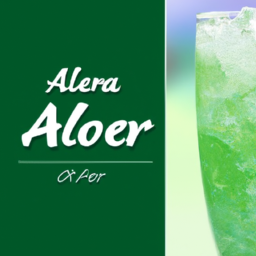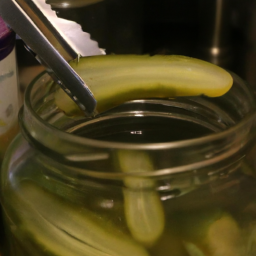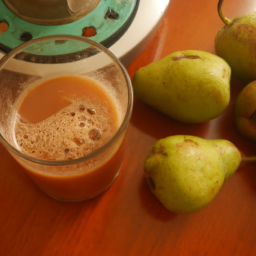For those who enjoy their morning glass of orange juice, it is important to know how to tell if the juice has gone bad. Drinking spoiled orange juice can lead to food poisoning and other health problems, so it is crucial to be able to identify the indicators of spoiled juice.
In this article, I will guide you through the various signs to look out for when checking if your orange juice is still good for consumption. One of the main ways to determine if orange juice has gone bad is to check its expiration date. All packaged orange juice comes with an expiration date, which indicates the time by which the juice should be consumed.
However, expiration dates are not always accurate, and there are other signs to look out for to ensure that the juice is still drinkable. Knowing what to look for can help you avoid getting sick and ensure that you only consume fresh and safe orange juice.
Key Takeaways
- Checking expiration date and signs of spoilage is important to avoid health risks.
- Proper storage and pasteurization are crucial for quality and shelf life.
- Drinking spoiled juice can lead to health risks and bacterial growth.
- Proper disposal is necessary to prevent contamination and health hazards.
The Importance of Checking Expiration Dates
It’s crucial to always check expiration dates on orange juice to avoid potential health risks. Food safety should always be a top priority, especially when it comes to consumable products like orange juice.
Before purchasing or consuming orange juice, it’s important to take note of the expiration date listed on the label. Label reading is a key step in ensuring that the orange juice you’re buying is fresh and safe for consumption.
Expired orange juice can cause food poisoning or other health problems, so it’s important to always check the expiration date before consuming. Even if the orange juice still looks and smells fresh, consuming it past its expiration date can still be a risk.
After checking the expiration date, it’s also important to look for signs of mold or discoloration, as these can also indicate that the orange juice has gone bad.
With these precautions in mind, you can enjoy your orange juice without worrying about any potential health risks.
Look for Signs of Mold or Discoloration
Check for any visible signs of mold or discoloration on the orange juice container. If you see any, it’s time to toss it out before it makes you sick. Possible contamination can occur due to improper handling, storage, or pasteurization, which can lead to health risks such as food poisoning or infections. It’s essential to keep an eye out for any signs of spoilage before consuming the juice.
To help you identify a bad batch of orange juice, here’s a table outlining the visible signs of mold or discoloration to look out for:
| Visible Signs | Description | Action Needed |
|---|---|---|
| Mold | Fuzzy spots or powdery film on the surface or at the bottom | Discard the juice immediately |
| Discoloration | A change in color from bright orange to brown or black | Check for an off smell before consuming |
| Cloudiness or Separation | Murky appearance or separation of solids and liquids | Avoid consuming and discard the juice |
If you notice any of these visible signs of spoilage, it’s crucial to discard the juice immediately. However, even if you don’t see any mold or discoloration, it’s always best to check for an off smell before consuming the juice.
Check for an Off Smell
When you open the container of orange juice, take a deep sniff to detect any unusual odors that may resemble the smell of spoiled milk or rotten eggs. This is one of the most common ways to detect spoilage and potential health risks when consuming orange juice.
The off smell is usually caused by the growth of bacteria or yeast in the juice, which can happen due to improper storage, exposure to heat or light, or expired shelf life. Some common causes of off smelling orange juice are:
- Exposure to air – when the container is not sealed properly, oxygen can get in and cause the juice to spoil faster.
- Heat – leaving the juice in a warm environment can accelerate the growth of bacteria and yeast.
- Cross-contamination – using a dirty utensil or pouring the juice into a dirty glass can introduce harmful bacteria into the juice.
In the next section, we’ll discuss how to taste the juice to further confirm if it has gone bad.
Taste the Juice
Now, take a sip of that delicious orange juice and let your taste buds confirm its freshness! When it comes to determining juice quality, taste preferences play an important role. If you’re someone who enjoys the sweet tang of freshly squeezed oranges, you’ll know when you’ve got a bad batch on your hands.
The taste of spoiled juice is unmistakable – it’s sour, bitter, and leaves a strange aftertaste in your mouth. On the other hand, good orange juice should taste bright, refreshing, and sweet with just the right amount of tartness. In addition to taste, pay attention to the texture of the juice.
A bad batch of orange juice may also have a thick or slimy texture, which is a sign that the juice has started to ferment or spoil. If you notice any of these signs, it’s time to toss the juice and find a fresh bottle. But if your taste buds and texture checks confirm that the juice is good, then you’re in for a refreshing treat.
Now, let’s move on to the next step and observe the texture of the juice.
Observe the Texture
Take a closer look at the consistency of your orange juice and feel the smoothness against your tongue. Check for pulp consistency as well; if the juice seems too thick or has chunks floating in it, it may have gone bad.
Additionally, observe the color of the juice. If it appears darker than usual or has a brownish tint, it may have started to spoil.
Texture is an essential aspect to consider when determining if your orange juice has gone bad. If the liquid seems slimy or has a strange odor, it’s best to discard it immediately. However, if the juice appears fresh and has a smooth consistency, it may still be safe to consume.
Considering the storage conditions is the next step in ensuring that your orange juice is not spoiled.
Consider the Storage Conditions
Observing the texture of orange juice is a good start in determining whether or not it has gone bad, but it’s not enough to rely solely on this method.
Another important factor to consider is the proper storage of orange juice. Proper storage can greatly affect the quality and shelf life of the juice.
To ensure proper storage of orange juice, it’s important to keep it refrigerated and at a consistent temperature. The ideal temperature for orange juice is between 32-40°F. If the juice is left at room temperature for too long, it can spoil quickly and become unsafe to consume. It’s also important to keep the container tightly sealed to prevent any exposure to air or contaminants.
By properly storing orange juice, you can extend its shelf life and maintain its quality for a longer period of time. Knowing the shelf life of orange juice is also important in determining whether it has gone bad or not.
Know the Shelf Life of Orange Juice
Understanding the shelf life of orange juice is crucial for ensuring its quality and safety for consumption. The expiration date on the label is a good indicator of when the juice will go bad, but there are a few other factors to consider when determining the shelf life of orange juice.
Here are three things to keep in mind when understanding expiration and storing orange juice properly:
-
Once the container is opened, the shelf life decreases significantly. It’s recommended to consume the juice within 7-10 days after opening.
-
Keeping the orange juice refrigerated at all times can help extend its shelf life.
-
Avoid leaving the juice out for extended periods of time, as it can spoil quickly in warm temperatures.
Now that we have a better understanding of the shelf life of orange juice, it’s important to learn about pasteurization and its role in ensuring the safety and quality of orange juice.
Learn About Pasteurization
Let’s explore how pasteurization works to ensure the safety and quality of our beloved orange juice. Pasteurization is a process that involves heating the juice to a specific temperature and holding it there for a certain amount of time. This helps to kill any harmful bacteria that may be present in the juice, which can cause foodborne illness. The process is named after Louis Pasteur, the French microbiologist who discovered it in the 19th century.
Pasteurization has many benefits, including extending the shelf life of juice and preserving its nutritional value. However, it can also alter the taste and texture of the juice, which is why many people prefer fresh squeezed juice.
It’s important to note that not all orange juice is pasteurized, and those that are not may carry a higher risk of contamination. Understanding pasteurization is crucial in ensuring that we consume safe and healthy orange juice.
Let’s now move on to understand the risks of drinking spoiled juice.
Understand the Risks of Drinking Spoiled Juice
Be careful not to drink spoiled juice, as it can lead to health risks and bacterial growth. Here are some things to keep in mind:
-
Always check the expiration date before drinking juice. If the expiration date has passed, it’s best to dispose of the juice.
-
Look for signs of spoilage, such as a sour smell, off taste, or cloudy appearance. If you notice these signs, it’s best to err on the side of caution and throw the juice away.
-
Properly store juice in the refrigerator, and consume it within a few days of opening. Leaving juice out at room temperature for too long can encourage bacterial growth.
-
If you’re not sure if the juice is still good, it’s better to be safe than sorry and dispose of it.
-
If you do consume spoiled juice and experience symptoms such as nausea, vomiting, or diarrhea, seek medical attention immediately.
It’s important to properly dispose of spoiled juice to prevent any further health risks.
Properly Dispose of Spoiled Juice
Now that we’ve got a better understanding of the risks of drinking spoiled juice, it’s important to know how to properly dispose of it. Improper disposal can lead to health hazards, so it’s crucial to handle it with care.
The best way to dispose of spoiled juice is to pour it down the drain while running hot water. This will help to dilute the juice and prevent any bacteria from lingering in the pipes. Avoid pouring it in the sink without running water, as this can cause the bacteria to accumulate and potentially contaminate other surfaces.
Additionally, it’s important to properly clean any containers or utensils that may have come into contact with the spoiled juice to prevent cross-contamination.
By following these steps, you can safely and effectively dispose of spoiled juice and prevent any potential health hazards.
Frequently Asked Questions
How long does it take for orange juice to spoil?
To prolong the freshness of orange juice, store it in the refrigerator at 40°F or below. Once opened, consume within 7-10 days. Avoid exposing it to air and light which can cause spoilage.
Can you still drink orange juice if it’s past its expiration date?
I don’t recommend drinking orange juice past the expiration date. The flavor changes and it may not be safe to consume. Alternative uses include using it for cooking or as a cleaning agent.
What are the health risks of drinking spoiled orange juice?
Drinking spoiled orange juice can cause food poisoning, leading to symptoms like vomiting, diarrhea, and stomach cramps. To prevent this, store orange juice properly and discard it if it smells off.
Can you tell if orange juice is bad just by looking at it?
I can perform a taste test to determine if orange juice has gone bad. The shelf life of orange juice varies and is dependent on factors such as storage temperature and packaging.
How should you dispose of spoiled orange juice?
To properly dispose of spoiled orange juice, pour it down the drain while running hot water. This helps to prevent clogs and minimize environmental impact. It is important to not pour it onto the ground or in the trash.
Conclusion
In conclusion, it’s crucial to know how to identify spoiled orange juice in order to avoid the risks of consuming contaminated juice. Always check the expiration date and look for signs of mold, discoloration, and an off smell.
Additionally, tasting the juice and observing its texture can also give you a good indication of whether it has gone bad. It’s important to keep in mind the shelf life of orange juice, which can vary depending on the type of juice and how it’s processed.
Understanding the process of pasteurization can also help you make informed choices about the juice you consume. And if you do come across spoiled juice, it’s important to properly dispose of it to prevent any potential health hazards.
By staying informed and vigilant, you can ensure that you’re always enjoying safe and healthy orange juice.









